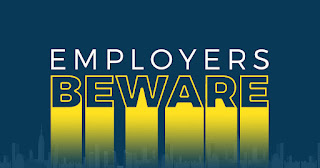Today, we bring to your attention the recent release of pivotal data by the U.S. Equal Employment Opportunity Commission (EEOC). This data, encompassing information from 2017 and 2018, provides an insightful glimpse into the state of pay disparities in American workplaces., which is illegal based on the Equal Pay Act. To learn more about the Equal Pay Act, take a CLE from Attorney Andrew Lieb here.
Key EEOC Findings:
The EEOC's data dashboard reveals a troubling reality: pay disparities based on sex and race persist across nearly every industry and state. Here are some crucial highlights:
- Gender Disparities: The data unequivocally shows that men continue to outearn women, with the median pay band for men consistently higher than that for women. In 2018, this gap was particularly pronounced, with men's median pay band being one or even two bands higher than women's.
- Racial Disparities: The disparities deepen when considering race and ethnicity. Black or African American women and American Indian or Alaska Native women find themselves in the lowest median pay bands, reflecting a distressing pattern of inequality.
- Industry and Job Category Trends: Across various industries and job categories, men consistently occupy higher median pay bands compared to women. While some sectors exhibit equal median pay bands, such as Accommodation and Food Services, these instances remain exceptions rather than the norm.
- Geographical Disparities: Disparities are not confined to specific industries or job categories but are pervasive across different states. For instance, in 2018, Wyoming, Louisiana, and West Virginia exhibited significant differences in median pay bands between men and women.
Implications for Legal Action:
The release of this data underscores the urgency of addressing pay discrimination in the workplace. Here's what you need to know:
- Equal Pay Act and Title VII: The EEOC enforces both the Equal Pay Act of 1963 and Title VII of the Civil Rights Act of 1964, which prohibit pay discrimination based on sex, race, color, national origin, and religion. If you believe that you have experienced pay discrimination, you may have legal grounds to pursue a case and if you live in a State, like New York, you can go back up to 3 years on the state's anti-discrimination law to bring your case.
- Data as Evidence: The aggregated data provided by the EEOC can serve as compelling evidence in legal proceedings. If you find that your pay is unfairly lower compared to colleagues of a different
gender or race in similar roles, this data can bolster your case. - Consultation: If you suspect pay discrimination in your workplace or have questions about your rights, we encourage you to seek legal consultation. Lieb at Law, P.C. is here to provide guidance and support as you navigate the complexities of employment law.












